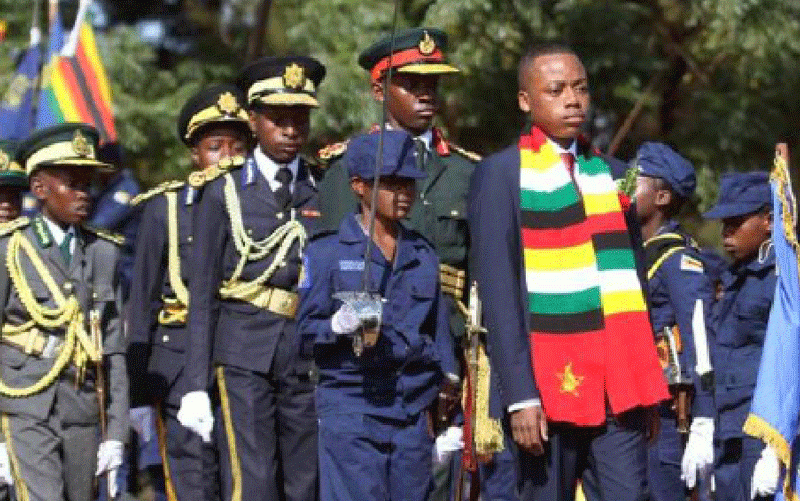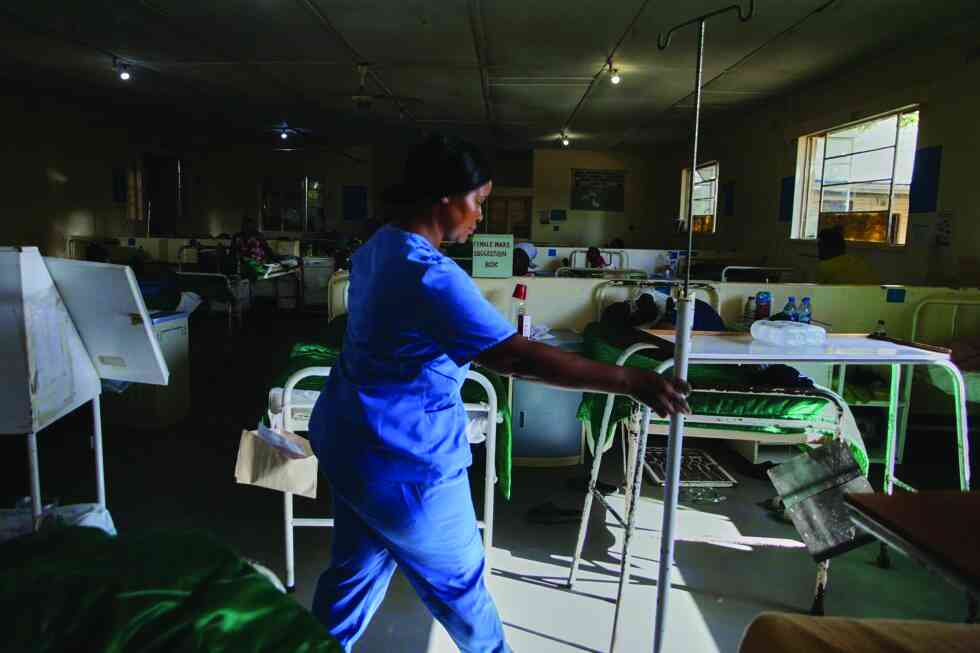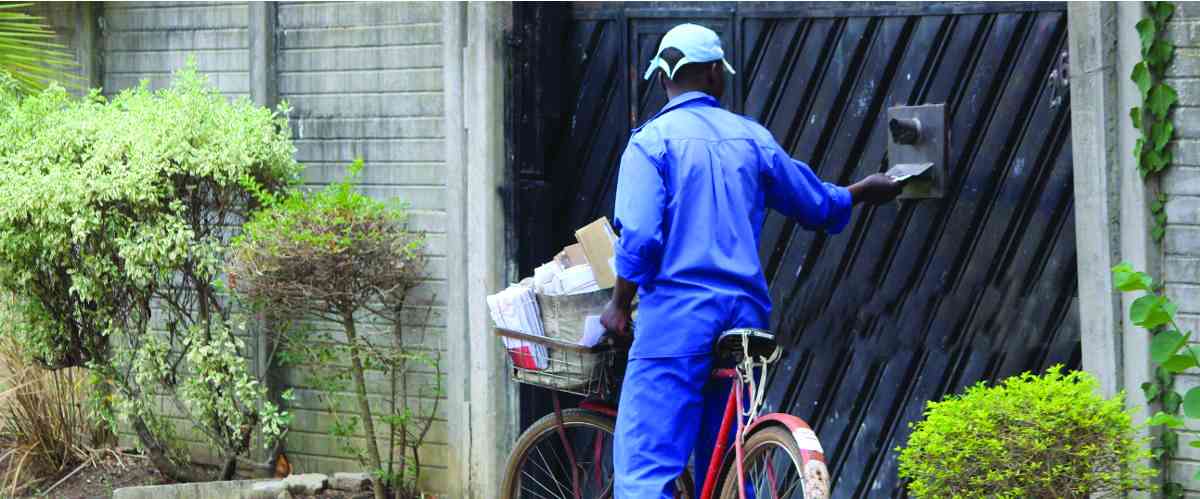
IS it not true that because of societal policies that promote equal opportunity for all, Barack Obama became President of America?
Is it not true that because of a society which recognises that each individual deserves a better opportunity to realise his or her dreams irrespective of background, many children of the poor have found their way up the ladder in the corporate and political worlds?
Never during the course of my life shall I forget the human resources manager, who recruited me into the banking industry 32 years ago.
His name keeps coming to my mind because he is a man who changed the course of my life for the better.
There were so many good applicants for the job and I do not doubt some of the applicants could have been equally better. But he chose to employ someone else he did not know.
Perhaps it is because the organisation believed in equal opportunity for all. I think great leaders shall be remembered for changing the lives of the ordinary children from low income communities.
When success arises out of individual effort, skill and talent and when equal opportunity is afforded to every child, then we begin to view such a society as a socially mobile society.
The future of a child must not be determined by the past circumstances of the parents but by the child’s willingness to change his or her individual circumstances.
- Cars up for grabs in batteries competition
- Young entrepreneur dreams big
- Chibuku NeShamwari holds onto ethos of culture
- Health talk: Be wary of measles, its a deadly disease
Keep Reading
Governments should endeavor to promote upward social mobility in their countries by allocating sufficient resources through the public budget for the development of the child.
Government investments in public education, public health and the general infrastructure create an opportunity for children of the poor to change their lives.
A society that has abundant opportunities for employment improves people’s incomes and resultantly change their way of life. But what is important, however, is a public budget that promotes fairness, equality and opportunity.
The period of Covid-19 pandemic taught us that it is not enough to talk of free education without funding the infrastructures that enable learning particularly in times of close down.
The period of pandemic restricted movement of people and so did it restrict the movement of learners. It meant that children were learning from home.
In areas with internet connectivity and where learners could afford communication technologies, they continued to interact with their teachers and learning was normal.
In poor rural communities where internet connectivity is extremely poor and children could not afford the communication gadgets, learning completely stopped for the two years of the shutdown.
Many children were forced into early marriages and a significant cases of drop outs was registered.
This is another area where the public budget must pay attention to afford equal opportunity to every child.
Whereas a public budget is a statement of projected revenues and expenditures of government over a certain period of time, social mobility entails the movement of individuals from one class of society to the next.
But the movement of people from one class to a better class either vertically or horizontally can be deliberately influenced by a progressive government policy.
A public budget is an instrument of change. Governments can transform lives and livelihoods through the public budget. A public budget is an important implementation tool of an economic development policy.
Prudent mobilisation and utilisation of public resources is key for both sustainable development and transformative development. We can change society for the better through the public budget.
We can provide better education, better health systems and better welfare programmes to the vulnerable society through the public budget and we can transform our agricultural systems through the same.
In a society with less greed people even the poor too have hopes of a better life. Opportunity for the poor is hampered by greed. Indeed greed is a vice.
An effort must be made through the public budget to create opportunities for every citizen. Formulating a citizen budget encompasses consulting citizens.
The process of eliciting the views of citizens must not just be routine or ceremonial but rather should provide critical information on which areas the budget should prioritise.
The consultation process must result in a citizen budget and not a budget of bureaucrats, which may not necessarily be informed by the aspirations of citizens.
Citizen participation in the public budgeting process ensures transparency and accountability. In every public finance management legislation across Africa today, the emphasis is on transparency and accountability.
This is to ensure that the system of government that holds public resources is transparent to the public and can account to the public for every income and expenditure done on their behalf. In a democracy, power belongs to the people - the ordinary citizens.
There is also increasing advocacy work around the principle of responsibility, which then ensures that accounting officers, who implement the budget must be responsible for the decisions they make, good or bad.
Where serious deviations are observed, penalties or sanctions must be imposed.
A public budget must pass the credibility test, both from a technical perspective and from a governance perspective.
Significant effort must be made to bring about all aspects of gender in public budgeting, that is looking at budgeting from a gender perspective.
A public budget must recognise the rights of women who have been previously marginalized.
It must find ways of bringing them into the mainstream economy.
Topical among budget issues today is child budgeting, which also seeks to recognise rights of children. Adequate funding must be provided for the full realisation of children's rights.
Many countries are now involving children and women, the disabled persons, and many of the vulnerable society in the budgeting process.
This is to amplify their voices in the public budget.
Parliamentarians should use their power which is derived from their Constitutions to scrutinize and pass the public budgets and advocate for allocation of sufficient resources.
At times resources can be allocated but will never find their way to the line ministries responsible for these groups, it is also the duty of the Parliamentarians to follow up on the release of funds.
This critical oversight role on public finances can also be done by civil society organisations, churches, and ordinary citizens.
Although there are many cases of abuse of public funds generally across the continent, there is a lot of effort in dealing with illicit activities as of now.
Caucuses like the Africa Parliamentarians Network on Illicit Financial Flows and the Africa Parliamentarians Network Against Corruption have been formed to coordinate activities that are around curbing illicit financial flows.
In conclusion, I think the idea of social budgeting can be broadened.
Social mobility is important in the study of the structure of society because it attends to issues of equality. It is also known or assumed in human life that given the same opportunity, not everyone will achieve the same results.
When you increase equal opportunities within a society, it means you have to deal with different layers of disadvantages experienced by different societal groups.
I am of the view that increasing social mobility is not just an argument for equality but rather an economic argument.
Equality of opportunity is critical for economic efficiency.
In cases where there is equality of opportunity, there is maximisation of the utilisation of individual skills and this is good for societal progress.
- Dr Nyashanu (@integraltransformation) writes in his personal capacity. — +263772989148.











